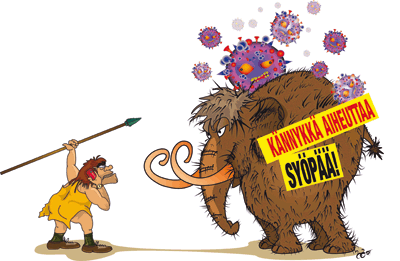Statistical and media truths
- Science is suspicious of unexpected findings
- News seek attention
- News consumer has hunter's fears
- Interpretation of public data involves risks
Whole document on one page
News consumer has hunter's fears
The media are always in a hurry, and this haste is not really reconcilable with the schedule of scientific knowledge, which is slow to gather and takes time to confirm. First results are generally based on research that is methodologically inferior, i.e. carried out quickly and cheaply.
Some time ago, preliminary findings suggested that antioxidants may prevent cancer. When the matter was investigated by more thorough (time-consuming, expensive) methods, it turned out that the findings of the earlier studies could no longer be confirmed. In the meantime, the preliminary results had been very visibly publicised, and the food industry, which had noticed a marketing opportunity, had begun to add antioxidants to their products. In the light of new research findings the benefits of the investments seem to have been at the very least questionable. Who is to blame?
The continuously growing offer of factual information often leads to simplifications, which in turn create unfounded fears. For example, the search for causes of rare but dangerous diseases may tempt journalists to incite unnecessary panic. Reading the health news in the tabloids, it is easy to understand what the age-old story of the tree of knowledge of good and evil is about. Stirring up fear and threats spells billions of euros and dollars in the media society.

The basic problem lies in us ourselves. The media consumer's interest in information seems to stem more or less from the same motive in the information society as among the hunter-gatherers roaming the African savannah: to draw his or her attention to threats and to seek quick solutions to them.
P�ivitetty 2.11.2011
